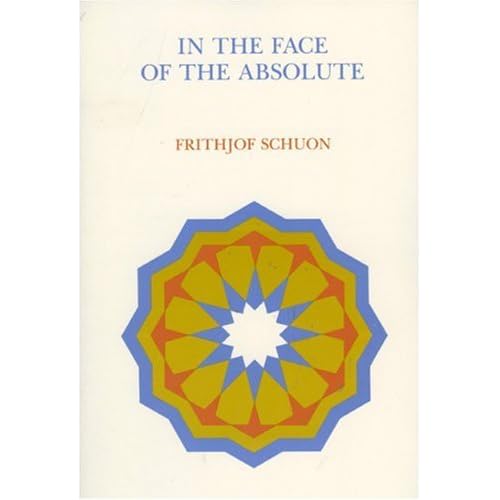Below is an excerpt from Frithjof Schuon's 1989 book, "In the Face of the Absolute." World Wisdom Books: Bloomington, Indiana. Pg. 21-22.
Dogmatic exoterism, as we have mentioned more than once, exhibits providential limitations determined by its mission and thus by its reason for being. To begin with, it excludes the idea of universal relativity --- of Maya --- and therefore is unaware of the diverse and at times antinomic aspects of things, as well as of the points of view which take them into account; this amounts to saying that it identifies itself with a particular point of view determined by a particular aspect. By excluding the notion of Maya, exoterism situates itself entirely within Maya, the summit of which is the personal God who creates and legislates; Paramatma, the supreme Self --- Boehme's Ungrund --- could not produce a world or found a religion. But religion could not be closed to the total truth, for God is one, and where the Divine Person is, there also is the Divine Essence; the latter is accessible through esoterism, precisely, by full right and despite a certain inevitable opposition on the part of the exoteric framework.
One has to realize that outward religion is not disinterested; it wants to save souls, no more no less, and at the cost of the truths that do not serve its holy strategy. Sapience, by contrast, wants only the truth, and the truth necessarily coincides with our final interests because it coincides with the Sovereign Good.
